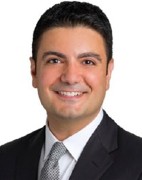contact
Jade Sutton
Administrative Assistant II
Exploring the Limits of Skeletal Expansion with Mini Screws
| Date: | Saturday, March 25, 2023 |
| Time: | 11 a.m. to 12:30 p.m. |
| Location: | University of Maryland School of Dentistry - Live Webinar via Zoom |
| Tuition: | Dentists: $59 |
| Credits: |
1.5 CDE credit hours - lecture The University of Maryland School of Dentistry designated this activity for 1.5 Continuing Dental Education hours. |
| Target Audience: | Dentists |
| Presented by: | Sercan Akyalcin, DDS, MS, PhD |
| Conflict of Interest: | Nothing to disclose |
Register Here
Speaker Biography
 Dr. Sercan Akyalcin serves as the Head of Orthodontics at Harvard School of Dental Medicine. He has a DDS-PhD degree and is a graduate of the orthodontic program at the University of Texas Health Science Center at Houston. He was a faculty member at Tufts University School of Dental Medicine in Boston, where he also served as the chair and graduate program director of Orthodontics before joining Harvard University.
Dr. Sercan Akyalcin serves as the Head of Orthodontics at Harvard School of Dental Medicine. He has a DDS-PhD degree and is a graduate of the orthodontic program at the University of Texas Health Science Center at Houston. He was a faculty member at Tufts University School of Dental Medicine in Boston, where he also served as the chair and graduate program director of Orthodontics before joining Harvard University.
Dr. Akyalcin is active in many leadership roles, serving on the Northeast Society of Orthodontists (NESO) Board of Directors and representing NESO on the house of delegates at the AAO. He also advocates for the Northeast region on the AAO Council on Education. As a dental educator and orthodontist, he has published fifty peer-reviewed papers, co-edited a textbook, contributed to twelve other orthodontic books, and served on the editorial boards of orthodontic and dental journals. In addition, he has been recognized with several awards in the field, including the 2019 Edward H. Angle Research Prize.
Course Description
With increasing skeletal maturity and resistance from anatomic structures, heavy interdigitation of the intermaxillary suture makes rapid palatal expansion (RPE) unfeasible when using conventional appliances. Therefore, mini screw supported RME appliances were originally developed for patients whom conventional RME may not be indicated. The rationale is to provide a safer separation for the intermaxillary suture without any significant side effects. However, intermaxillary suture separation may not readily occur in every patient that a mini screw supported RME appliance is used. This lecture aims to present how mini screw supported expansion may and may not work for your practice setting with case demonstrations.
Course Objectives
At the conclusion of this course, participants should be able to:
- Identify the differences between conventional and mini screw supported RME.
- Design and utilize mini screw supported expansion appliances based on right indication.
- Analyze what outcomes could reasonably be expected after RME based on age, function, and proper diagnosis.
